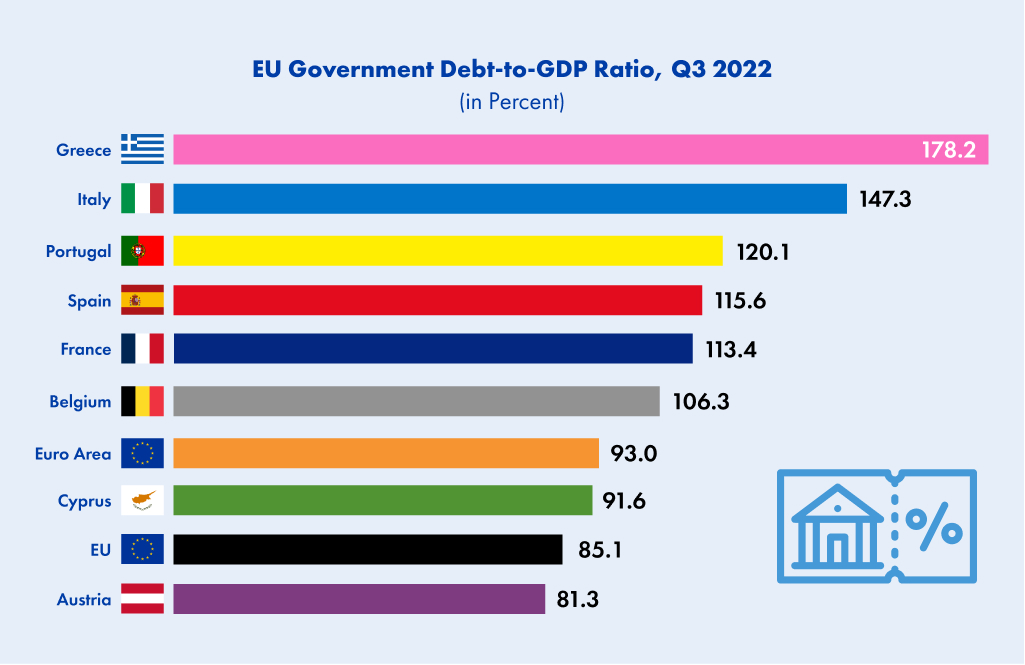Issue #119
Guten Morgen! Welcome to another edition of the Krautshell! This week, Max – exasperated by the breaking news that Germany is burning more and more coal – shares his thoughts and concerns about German energy policy in his House’s View. In addition, check out our main article about the recent wave of protests in Georgia, a funny (pun-ny) take on a technical topic – namely, possible government plans to ban the Chinese company Huawei from Germany’s 5G network – and a run-down of last weekend’s cabinet meeting in a town no one’s ever heard of called Meseberg. Finally, enjoy Szilvia stating the obvious about Germans and their cars. Have a great weekend! Anna Szilvia Protests in Georgia (No, The Other One) This newsletter is meant to inform you about developments outside your daily life and news and provide you with some entertainment or “Aha!”-moments, just as when I learned what a Filibuster is. And it’s even better when we need to report about a country, we – frankly speaking – also don’t know sh*t about and learn something ourselves. Like this week, when there were big protests in Tbilisi, which is the capital of Georgia (no I don’t do any jokes here about Americans confusing US states with European countries). People protested so heavily there that the government couldn’t help but take back a law which people were resenting. What’s it all about? Georgia, which is called Sakartvelo by its own citizens in an attempt to help Republican US Senators who were also under the impression that the Paris Climate Agreement was aid for people in Paris (okay, I said I wouldn’t do that kind of joke, but I did – fight me), shares a border with Russia. And Russia for various complicated reasons still controls 20% of what should be Sakartvelon landmass under international law. Now, Sakartvelo is generally eager to join NATO and EU. HOWEVER, there are also some pro-Russian forces in the country which might be a reason people were occupying the entries to the parliament when the government was about to pass a law requiring media institutions and NGOs to register as foreign agents should over 20% of their finances come from abroad. While that sounds like a weird but not catastrophic law, you should know that a similar law was passed in Russia in 2012 as means to punish and later shut down any government-critical media. The fact the law was sacked by the government in Tbilisi after the protest can be considered a success. Hua-Wei’d You Have to Go? Surprise surprise, Germany’s late to the party. And by party, I mean making a very difficult decision about telecommunications infrastructure that will carry heavy geopolitical consequences with it. Yes, I understand if your third cousin twice removed needs help moving houses exactly when I throw my next party, no hard feelings. But questionably fun social gatherings aside, we’ve heard buzz from inside German government circles this week that Chinese telecommunications companies Huawei and ZTE may be on the out. Specifically, if the government decides to ban the two Chinese companies from German telecommunications networks, the major telco providers (Telekom, Vodafone, Telefonica) would need to retroactively remove any of these companies’ components in their infrastructure. The decision would signal quite the monumental shift in Germany’s approach to China, as this would mean (under Germany’s IT-Security Act 2.0) both companies have been found to either be controlled by the Chinese government or act against the security objectives of Germany, the EU, or NATO. Pretty heavy stuff. So far, Germany has tried its absolute best to resist US and UK pressure to take a harder stance – not least because the Middle Kingdom has been Germany’s largest trading partner since 2016. But the jig might begrudgingly be up. Scholz and co. are realizing they need to show unity among the Western allies. Certain is that Huawei and ZTE would be the first domino in a chain reaction. Whispers in Berlin have indicated that these close reviews may well apply to other sectors soon – with a draft law on the horizon in the summer. Federal CIO Markus Richter all but confirmed this path going forward at an event by the American Chamber of Commerce in Germany this week. Unsurprisingly, the Chinese are not thrilled with these developments, and pro-China editorials have already called for Germany to resist being an “obedient follower of the US.” Either way, we’ll be sure to keep you updated. How About Germany’s Government? Maybe some of you have been in a relationship which hasn’t been that good anymore. But instead of breaking up, you rather make a trip to a place where you used to be happy together in former times. This is what happened with the German government this week when they went to their retreat in the castle of Meseberg (if you asked yourself whether our introductions could get worse, here’s the answer). Even though German governments do that quite regularly, you can say they definitely do it when the mood is bad. In the trouble of daily politics and drama in Berlin, it’s hard to have private conversations where you might be able to sort out problems without writing angry letters to each other in public like the ministers Habeck (Greens) and Lindner (FDP) did a few weeks ago. Like we reported, Greens and FDP are in constant conflict in this government while Chancellor Scholz (SPD) was eager to say into every camera and microphone he could find in Meseberg that everything was fine and the retreat had been productive. The messages of the retreat are somewhat vague – apparently the government parties agreed that we now need to focus again on making improvements in climate protection with renewable energies and further support the roll-out of AI and other fancy digitalization buzzwords. Great. However, little concrete joint projects were presented. Every party basically got their own nice law or initiative, and the great cooperation is defined as the others not torpedoing it directly. If Chancellor Scholz wants to bring his government back on track, he might want to start rather sooner than later. At least, we can confirm he armed himself with a snowball. Whether he threw it at the quarrelers Lindner and Habeck, we don’t know for sure. Source: Eurostat THE HOUSE’S VIEW: by Max Energiewende out of Steam? “The Energiewende — the biggest political project since reunification — threatens to fail”, ran the story in Germany’s largest weekly news magazine, Der Spiegel. Over a period of five years, the Energy Transition has cost Germany €32 billion ($36 billion) annually, and opposition to renewables is reportedly growing in the countryside, as “politicians fear citizen resistance”. An understandable challenge amidst a historic war-induced energy crisis, perhaps? You’d be forgiven for thinking so. But the article quoted above was published in May 2019 – long before Putin, pipelines and all the other unpleasant attributes of 2023 we would like to forget – and suggests a bigger problem than the current Energy Crisis. What’s going on? German media reported this week that electricity generation from coal increased by 8.4 percent within a year, making dirty coal by far the most important energy source for Europe’s largest economy. This poses uncomfortable questions for an SPD (Social Democrats)-Greens-FDP (Liberals) government which is committed not only to the Paris Climate Agreement but also to the rapid transition of Germany’s economy from fossil fuels to renewable energy sources. But coal and emissions are up, and this week’s news fit in neatly with several setbacks on the energy policy front, suggesting that further trouble is brewing around Germany’s Energy Transition. Take the electricity grid. In an in-depth analysis, Bloomberg recently reported that Germany is facing a “$1 Trillion Challenge” to plug a massive anticipated power gap, requiring 250 GW of new capacity by 2030 or 43 soccer fields of solar power per day. That simply isn’t happening so far, and neither is the federal government getting in front of the ambitious expansion targets for wind energy it has set itself. Meanwhile, Germany’s remaining nuclear power plants are due to shut down in mid-April, tearing a further (4.3 GW) hole in the energy grid, while future LNG and gas deliveries remain a major challenge amidst increased prices and global demand. The government knows all this of course, which begs the question: How could Europe’s economic powerhouse run itself into an energy policy corner like this? A large part of the problem is an ideological rejection of nuclear energy. While many European countries are investing in next-generation nuclear technologies as an abundant and low-emissions energy source, Germany remains stuck in a self-devised trap. The 2011 Atomausstieg (nuclear exit) passed with the overwhelming support of all major parties, meaning that nuclear power no longer has a political support base outside the parliamentary fringes. Worse still, the nuclear exit – centerpiece of former Chancellor Merkel’s Energiewende – was (un)consciously linked to the plentiful (and cheap) supply of Russian gas, creating dependencies we have yet to fully shake off. (No need to elaborate here, I hope.) And finally, there’s no easy way back even if the political class should somehow decide to revive Germany’s nuclear industry. The technology has progressed in leaps since 2011, and Germany’s once cutting-edge scientists would need years of effort to get back in the game. In short, a major bridge to carbon neutrality has been burnt, and Germany’s low-carbon options are effectively limited to wind and solar. More fundamentally, however, there is a general unwillingness among policymakers to confront Germany’s energy policy Sonderweg (Special Path). This term was popularized by the historian Fritz Fischer in the 1960s to describe a particular (in that case: illiberal) trend in Germany’s historical development which contributed to its terrible roles in WWI and WWII. And while this may be a doubtful way to look at complex historical conflicts, there is little doubt that Germany’s Energy Transition has in fact been a Sonderweg of major proportions: No major economy has engaged in a full-scale attempt at decarbonization as intensely and as early as Germany, and the costs are staggering in the electricity sector alone. It would take courage for political leaders to admit what a great gamble they have set out upon, because, after all, this has never been tried before. And above all: What if this too-big-to-fail project fails? The House’s View: Talk the Talk, Walk the Walk Germany’s Energy Transition is a laudable goal that deserves bipartisan political support and a technology-open debate. We have the first but are sorely lacking the second. There is a German saying – “Wer A sagt, muss auch B sagen” – which basically translates to “Talk the talk, walk the walk”. If the German government is seriously committed to lowering carbon emissions, it should present a feasible plan to achieve this goal rather than set unrealistic targets. As policymakers themselves readily admit, wind and solar capacities are not expanding at nearly fast enough rates, and hydrogen is both extremely wasteful and in its infancy. This leaves much-maligned nuclear power, the only low-carbon energy source with a proven ability to support industrial economies. A German government that really cares about carbon emissions should at least consider this option, rather than dismissing nuclear power as an uncontrollable high-risk technology. Otherwise, we are looking at more of the same policies, and more of the same outcomes. Germany is taking car of it ODER: It’s Germany, stupid „According to the proposals of the European Commission, only CO2-neutral vehicles will be allowed in the transport sector in Europe in 2035. This will have a correspondingly earlier impact in Germany. Outside the existing system of fleet limits, we are working to ensure that vehicles that are verifiably fuelled with e-fuels only, can be newly registered.” Not only does the coalition treaty of 2021 clearly include the position that the German government used to block the EU’s agreement on the combustion engine ban earlier in March, we have other facts here: 800.000 jobs depending on the industry, 58% of the population against the ban, a transport minister from the liberal democrats and – hey! – we are talking here about G e r m a n y and its c a r i n d u s t r y. Actually, it is pretty worrying that nobody in Brussels had the analytical skills – or at least the gut feeling – to see this problem coming. I mean: even the Green coloured state secretary from the economics ministry supported the FDP’s move. And this Brussels blindness is what the German government now tries to exploit, as its ultimatum came – indeed – unusually late in the process. (But still in the deadline though… Germans…) I am not worried that there will be a solution. The president of the European Commission was personally in Germany last weekend and her VP is already in direct talks with transport minister Wissing. On the table is a suggestion to alter the way emissions are calculated: E-fuels could then prove that their CO2 tailpipe emissions were balanced with the CO2 sucked from the atmosphere when producing them. The FDP will go with it. The point has been made and the goal has been reached. Issue #119


FIRST, SOME SOLID INTEL:
TAKE A BREAK, GIVE YOUR EYES A REST.

LONG STORY SHORT:
WHAT’S ON OUR MINDS:





